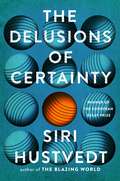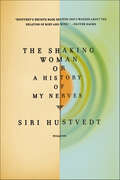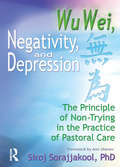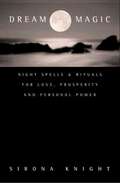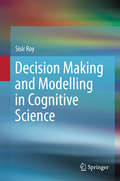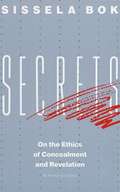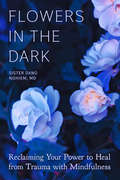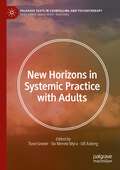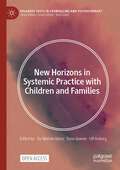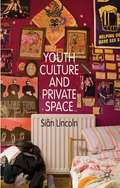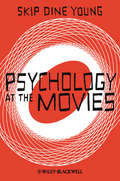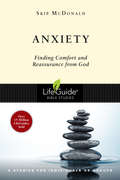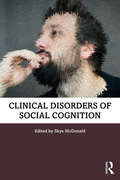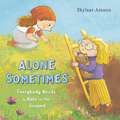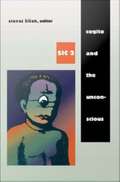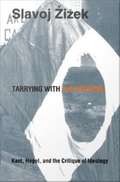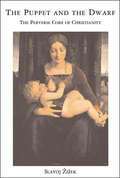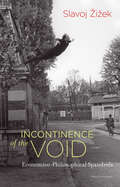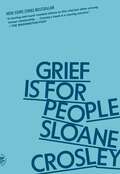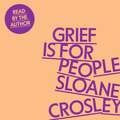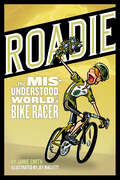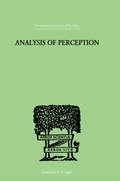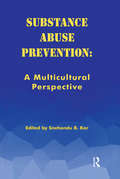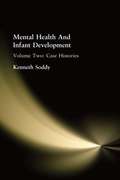- Table View
- List View
The Delusions of Certainty
by Siri Hustvedt&“The Delusions of Certainty is a unique book by an extraordinary author. Siri Hustvedt is a notable novelist, art scholar, and a philosopher of science. In this memorable and immensely enjoyable volume, Hustvedt rises above the exhausted debate over the two cultures, to demonstrate not just the possibility but also the advantages of combining the approaches of the arts, humanities, and sciences to illuminate a key aspect of the human condition: the mind-body problem.&” —Antonio Damasio, bestselling author of Descartes&’ Error and Self Comes to Mind &“Siri Hustvedt proves her membership in the highest rank of neuroscientists and philosophers who probe the nature of thought and the workings of consciousness. A novelist and a student of psychoanalysis and neuroscience, Hustvedt can ask questions others cannot ask about imagination, identity, epistemology, gendered power, and mortality. Her authoritative knowledge and her courage to challenge the status quo guide the reader to fresh epiphanies about what counts as human nature. The work is, in the end, a work of freedom.&” —Rita Charon, Columbia University &“The Delusions of Certainty is the best book on the mind-body problem I have ever read. Perhaps only a great novelist and essayist can address what neuroscientists and philosophers fail to question. Siri Hustvedt takes the reader on an inspiring journey into highly relevant and often unanswered questions about what it means to be human.&” —Vittorio Gallese, University of Parma Prizewinning novelist, feminist, and scholar Siri Hustvedt turns her brilliant and critical eye toward the metaphysical issues of neuropsychology in this lauded, standalone volume. Originally published in her &“canonical&” (Publishers Weekly) and &“absorbing&” (Kirkus Reviews) collection A Woman Looking at Men Looking at Women, The Delusions of Certainty exposes how the age-old, unresolved mind-body problem has shaped—and often distorted and confused—contemporary thought in neuroscience, psychiatry, genetics, artificial intelligence, and evolutionary psychology.
The Shaking Woman, or A History of My Nerves
by Siri HustvedtThe author delves into the mysteries of her own neurological condition in a far-ranging memoir that is “graceful, intense, and curiously affirming” (Booklist).While speaking at a memorial event for her father in 2006, novelist Siri Hustvedt suffered a violent seizure from the neck down. Despite her flapping arms and shaking legs, she continued to speak clearly and was able to finish her speech. It was as if she had suddenly become two people: a calm orator and a shuddering wreck. Then the seizures happened again and again.The Shaking Woman or A History of My Nerves tracks Hustvedt’s search for a diagnosis, one that takes her inside the thought processes of several scientific disciplines, each one of which offers a distinct perspective on her paroxysms but no ready solution. In the process, she finds herself entangled in fundamental questions: What is the relationship between brain and mind? How do we remember? What is the self?In The Shaking Woman, Hustvedt synthesizes her experience and research into a compelling mystery: Who is the shaking woman? In the end, the story she tells becomes, in the words of George Makari, author of Revolution in Mind, “a brilliant illumination for us all.”
Wu Wei, Negativity, and Depression: The Principle of Non-Trying in the Practice of Pastoral Care
by Siroj SorajjakoolDiscover a pastoral approach to depression that combines Eastern wisdom and Western science!Wu Wei, Negativity, and Depression reveals a way to break the cycle of depression, not by denying it or fighting it, but by the ancient principle of wu wei, non-trying. The bleak cycle of depression starts when people experience negativity. They turn inward to try to find self-esteem, but the negativity strips all the power of self-affirmation from them. The gap between is and ought--how they see themselves and how they want to be--is too great to bridge. The cycle known as self-regulatory perseveration means that depressed persons are caught in a desperate, fruitless search for affirmation. Instead of self-esteem, they find self-criticism and further negative thoughts. Yet they keep looking . . . and looking . . . and looking. The more they look for self-worth inside, the less they find, and the harder they try--the cycle continues. When trying simply doesn&’t work, wu wei, the principle of letting go, may help break that cycle. When trying simply doesn't work, wu wei, not-trying, may help. Wu wei is the principle of letting go. By giving up on the self-imposed and unattainable oughts and shoulds, the depressed person stops focusing on self. Wu wei breaks the cycle of negativity, allowing the depressed person to begin to heal.Wu Wei, Negativity, and Depression offers a comprehensive discussion of depression, including: epidemiology of depression etiology and biological causes psychosocial theories standard treatments of the past and present pastoral care of depressed persons This important book constructs a possible approach to depressed souls weary of fighting and trying to fix themselves. Wu Wei, Negativity, and Depression can bring new hope to those who most need it.
Dream Magic: Night Spells & Rituals for Love, Prosperity and Personal Power
by Sirona KnightMagic Can Make Your Dreams Come True!What do you want to do tonight as you close your eyes and enter the magical world of dreams? Walk with the Faery Folk? Summon your soul mate? Ask the Goddess to grant you one special wish? Or experience a prophetic dream that will reveal your future? now you can access the magical power of your dreams with Dream Magic, a one-of-a-kind collection of night spells and rituals.Popular Wiccan author Sirona Knight guides you carefully and clearly through the exciting world of using magic to make your dreams come true. Understanding that the realm of dreams is where the day-to-day and the magical overlap, this book shows you how to tap into the potent power of the dream world. Dream Magic features:A detailed list of easy-to-find magical ingredientsFun and simple step-by-step instructionsAn index of helpful Goddesses and GodsWith more than a hundred empowering spells, Dream Magic unlocks your dream world's boundless possibilities. With easy-to-reference chapters on magical dreaming for love, money, success, self-empowerment, health, beauty, and more, as well as an introduction to the basics of magic and how to get started, this book can be used by the beginner as well as the seasoned practitioner. Anything you can imagine is possible with Dream Magic.
Decision Making and Modelling in Cognitive Science
by Sisir RoyThis book discusses the paradigm of quantum ontology as an appropriate model for measuring cognitive processes. It clearly shows the inadequacy of the application of classical probability theory in modelling the human cognitive domain. The chapters investigate the context dependence and neuronal basis of cognition in a coherent manner. According to this framework, epistemological issues related to decision making and state of mind are seen to be similar to issues related to equanimity and neutral mind, as discussed in Buddhist perspective. The author states that quantum ontology as a modelling tool will help scientists create new methodologies of modelling in other streams of science as well.
Secrets: On the Ethics of Concealment and Revelation
by Sissela BokThe book shows how the ethical issues raised by secrets and secrecy in our careers or private lives take us to the heart of the critical questions of private and public morality.
Flowers in the Dark: Reclaiming Your Power to Heal from Trauma with Mindfulness
by Sister Dang NghiemLearn the accessible and deeply compassionate practices for healing trauma, known as the Five Strengths of applied Zen Buddhism. More than a philosophy, these body-based practices are backed by modern neuroscience research, and they can be applied by anyone suffering from trauma to begin experiencing relief.Mindfulness teacher Sister Dang Nghiem, MD, is an inspiration for anyone who has ever suffered from abuse, life-changing loss, severe illness, or the aftermath of war. In Flowers in the Dark, she brings together her lived experience as a survivor, certified MD, and ordained Buddhist teacher to offer a body-based, practical approach to healing from life's most difficult and painful experiences. Offering insights from Buddhist psychology and simple somatic practices for tapping into our Five Strengths--our inner faculties of self-trust, diligence, mindfulness, concentration, and insight--Sister Dang Nghiem's approach to trauma is radically accessible; it begins with awareness of our breathing. With each chapter containing a progression of guided reflections an exercises, this book can be read as an adjunct to therapy and a helpful guide for moving through trauma in the body. With the practice of mindfulness, we can access our strength as survivors and our joy in being alive.
New Horizons in Systemic Practice with Adults (Palgrave Texts in Counselling and Psychotherapy)
by Tone Grover Siv Merete Myra Ulf AxbergThis book explores the various applications of systemic understanding in practice. Each chapter covers diverse working contexts and existential life dilemmas, tackling subjects such as: systemic work with individuals, single session family therapy, experiences of adult longing, the therapeutic relationship as a form of love, working systemically with experiences of marginalisation, cultural difference and diversity, the integration of recent neuroscience developments with systemic therapy with couples, the role of forgiveness and the spiritual dimension in therapy. Throughout, this book promotes hope by presenting new horizons and providing room for reflection on uncertainty, change, opportunities, inter-connections and differences. Theoretical expansion of these existential issues lies both at the heart of systemic work and on the leading edge of research and theory-practice linking, showing how the integration of research with new developments across the broader fields of psychotherapy and counselling can be held within a systemic relational umbrella.
New Horizons in Systemic Practice with Children and Families (Palgrave Texts in Counselling and Psychotherapy)
by Siv Merete Myra Ulf Axberg Tone GrøverThis open access book illustrates how systemic theory, as both a meta-theory and a relational organic theory, can be a suitable framework for understanding and appreciating the new horizons of systemic practice with children and families in their various contexts. The different chapters shed light on how systemic perspectives, as they are presented in their varying contexts, promote hope by giving room for reflections on uncertainty, change, opportunities, interconnections, and differences. The authors describe and reflect on how systemic approaches can be useful for practitioners and make space for a multiplicity of different perspectives that address the needs of children and those assisting them in their various settings, where children grow and develop in the context of their unique needs and challenges. It covers safeguarding children’s rights through parental separation and divorce; families experiencing anticipatory grief; parents struggling with substance use problems; gender incongruence; eating disorders; systemic perspectives on psychiatric diagnosis; children with disabilities; and systemic practice in school. The book will be a source of inspiration, as the purpose is to illustrate the systemic field in constant motion, which encourages, maybe even requires a plurality of theories, perspectives and approaches. But, most importantly, it demonstrates how working with children and families is a privilege.
Youth Culture and Private Space
by Siân LincolnSi#65533;n Lincoln considers the use, role and significance of private spaces in the lives of young people. Drawing on extensive ethnographic research, she explores the place of 'the private' in youth cultural discourses, both historically and contemporarily, that until now have remained largely absent in youth cultural research.
Psychology at the Movies
by Skip Dine YoungPsychology at the Movies explores the insights to be gained by applying various psychological lenses to popular films including cinematic depictions of human behavior, the psychology of filmmakers, and the impact of viewing movies.Uses the widest range of psychological approaches to explore movies, the people who make them, and the people who watch them Written in an accessible style with vivid examples from a diverse group of popular films, such as The Silence of the Lambs, The Wizard of Oz, Star Wars, Taxi Driver, Good Will Hunting, and A Beautiful MindBrings together psychology, film studies, mass communication, and cultural studies to provide an interdisciplinary perspectiveFeatures an extensive bibliography for further exploration of various research fields
Anxiety: Finding Comfort and Reassurance from God (LifeGuide Bible Studies)
by Skip McDonaldShallow breathing or even a feeling that you can't breathe. Constant negative thoughts. Inability to focus.®
Clinical Disorders of Social Cognition
by Skye McDonaldClinical Disorders of Social Cognition provides contemporary neuroscientific theories of social cognition in a wide range of conditions across the lifespan. Taking a trans-diagnostic approach to understanding these disorders, it discusses how they present in different conditions, ranging from brain injury to neurodevelopmental disorders, psychiatric conditions and dementia. Social cognitive disorders directly impact upon individuals’ work, leisure and social functioning. This book also collates and critiques the best and most useful assessment tools across the different disorders and coalesces research into intervention strategies across disorders to provide practical information about how such disorders can be assessed and treated so individuals can have meaningful, effective and satisfying social interactions. This book is essential reading for clinicians who work with people with clinical disorders and who are looking for new knowledge to understand, assess and treat their clients with social cognitive impairment. It will also appeal to students and professionals in clinical neuropsychology, speech and language pathology and researchers who are interested in learning more about the social brain and understanding how evidence from clinical conditions can inform this.
Alone Sometimes: Everybody Needs a Hole in the Ground
by Skylaar AmannIn Skylaar Amann’s gentle, beautifully illustrated picture book, two best friends learn that sometimes everyone needs a quiet, safe space to just be. Ren and Kit are the best of friends, always doing everything together. But when Ren needs some quiet time to herself, she chooses to hide away in an unlikely place. Kit doesn’t understand, but she’s willing to listen and learn. And in the end, they both realize that sometimes, everybody needs a hole in the ground. Alone Sometimes speaks directly to the need we all occasionally have for a safe space where we can hide away from the frustrations of the world.
Cogito and the Unconscious
by Slavoj I EkThe Cartesian cogito--the principle articulated by Descartes that "I think, therefore I am"--is often hailed as the precursor of modern science. At the same time, the cogito's agent, the ego, is sometimes feared as the agency of manipulative domination responsible for all present woes, from patriarchal oppression to ecological catastrophes. Without psychoanalyzing philosophy, Cogito and the Unconscious explores the vicissitudes of the cogito and shows that psychoanalyses can render visible a constitutive madness within modern philosophy, the point at which "I think, therefore I am" becomes obsessional neurosis characterized by "If I stop thinking, I will cease to exist. " Noting that for Lacan the Cartesian construct is the same as the Freudian "subject of the unconscious," the contributors follow Lacan's plea for a psychoanalytic return to the cogito. Along the path of this return, they examine the ethical attitude that befits modern subjectivity, the inherent sexualization of modern subjectivity, the impasse in which the Cartesian project becomes involved given the enigmatic status of the human body, and the Cartesian subject's confrontation with its modern critics, including Althusser, Bataille, and Dennett. In a style that has become familiar to Zizek's readers, these essays bring together a strict conceptual analysis and an approach to a wide range of cultural and ideological phenomena--from the sadist paradoxes of Kant's moral philosophy to the universe of Ayn Rand's novels, from the question "Which, if any, is the sex of the cogito?" to the defense of the cogito against the onslaught of cognitive sciences. Challenging us to reconsider fundamental notions of human consciousness and modern subjectivity, this is a book whose very Lacanian orthodoxy makes it irreverently transgressive of predominant theoretical paradigms. Cogito and the Unconscious will appeal to readers interested in philosophy, psychoanalysis, cultural studies, and theories of ideology. Contributors. Miran Bozovic, Mladen Dolar, Alain Grosrichard, Marc de Kessel, Robert Pfaller, Renata Salecl, Slavoj Zizek, Alenka Zupancic
Tarrying with the Negative: Kant, Hegel, and the Critique of Ideology
by Slavoj I EkIn the space of barely more than five years, with the publication of four pathbreaking books, Slavoj Zizek has earned the reputation of being one of the most arresting, insightful, and scandalous thinkers in recent memory. Perhaps more than any other single author, his writings have constituted the most compelling evidence available for recognizing Jacques Lacan as the preemient philosopher of our time. In Tarrying with the Negative, Zizek challenges the contemporary critique of ideology, and in doing so opens the way for a new understanding of social conflict, particularly the recent outbursts of nationalism and ethnic struggle. Are we, Zizek asks, confined to a postmodern universe in which truth is reduced to the contingent effect of various discursive practices and where our subjectivity is dispersed through a multitude of ideological positions? No is his answer, and the way out is a return to philosophy. This revisit to German Idealism allows Zizek to recast the critique of ideology as a tool for disclosing the dynamic of our society, a crucial aspect of which is the debate over nationalism, particularly as it has developed in the Balkans--Zizek's home. He brings the debate over nationalism into the sphere of contemporary cultural politics, breaking the impasse centered on nationalisms simultaneously fascistic and anticolonial aspirations. Provocatively, Zizek argues that what drives nationalistic and ethnic antagonism is a collectively driven refusal of our own enjoyment. Using examples from popular culture and high theory to illuminate each other--opera, film noir, capitalist universalism, religious and ethnic fundamentalism--this work testifies to the fact that, far more radically than the postmodern sophists, Kant and Hegel are our contemporaries.
The Puppet and the Dwarf: The Perverse Core of Christianity (Short Circuits)
by Slavoj ZizekOne of our most daring intellectuals offers a Lacanian interpretation of religion, finding that early Christianity was the first revolutionary collective. Slavoj Žižek has been called "an academic rock star" and "the wild man of theory"; his writing mixes astonishing erudition and references to pop culture in order to dissect current intellectual pieties. In The Puppet and the Dwarf he offers a close reading of today's religious constellation from the viewpoint of Lacanian psychoanalysis. He critically confronts both predominant versions of today's spirituality—New Age gnosticism and deconstructionist-Levinasian Judaism—and then tries to redeem the "materialist" kernel of Christianity. His reading of Christianity is explicitly political, discerning in the Pauline community of believers the first version of a revolutionary collective. Since today even advocates of Enlightenment like Jurgen Habermas acknowledge that a religious vision is needed to ground our ethical and political stance in a "postsecular" age, this book—with a stance that is clearly materialist and at the same time indebted to the core of the Christian legacy—is certain to stir controversy.
Incontinence of the Void: Economico-Philosophical Spandrels (Short Circuits)
by Slavoj ŽižekŽižek considers sexuality, ontology, subjectivity, and Marxian critiques of political economy by way of Lacanian psychoanalysis. If the most interesting theoretical interventions emerge today from the interspaces between fields, then the foremost interspaceman is Slavoj Žižek. In Incontinence of the Void (the title is inspired by a sentence in Samuel Beckett's late masterpiece Ill Seen Ill Said), Žižek explores the empty spaces between philosophy, psychoanalysis, and the critique of political economy. He proceeds from the universal dimension of philosophy to the particular dimension of sexuality to the singular dimension of the critique of political economy. The passage from one dimension to another is immanent: the ontological void is accessible only through the impasses of sexuation and the ongoing prospect of the abolition of sexuality, which is itself opened up by the technoscientific progress of global capitalism, in turn leading to the critique of political economy. Responding to his colleague and fellow Short Circuits author Alenka Zupančič's What Is Sex?, Žižek examines the notion of an excessive element in ontology that gives body to radical negativity, which becomes the antagonism of sexual difference. From the economico-philosophical perspective, Žižek extrapolates from ontological excess to Marxian surplus value to Lacan's surplus enjoyment. In true Žižekian fashion, Incontinence of the Void focuses on eternal topics while detouring freely into contemporary issuesfrom the Internet of Things to Danish TV series.
Grief Is for People
by Sloane CrosleyNamed a Best Book of the Year by Vogue, TIME, The Washington Post, The Boston Globe, Esquire, NPR, Elle, Library Journal, LitHub, Oprah Daily, Publishers Weekly, Chicago Public Library, Kirkus, Bookpage, The Independent, and New StatesmanDisarmingly witty and poignant, Sloane Crosley’s memoir explores multiple kinds of loss following the death of her closest friend.How do we live without the ones we love? After the pain and confusion of losing her closest friend to suicide, Sloane Crosley looks for answers in philosophy and art, hoping for a framework more useful than the unavoidable stages of grief.For most of her adult life, Sloane and Russell worked together and played together as they navigated the corridors of office life, the literary world, and the dramatic cultural shifts in New York City. One day, Sloane’s apartment is broken into. Along with her most prized possessions, the thief makes off with her sense of security, leaving a mystery in its place.When Russell dies exactly one month later, his death propels Sloane on a wild quest to right the unrightable, to explore what constitutes family and possession as the city itself faces the staggering toll of the pandemic.Sloane Crosley’s search for truth is frank, wickedly funny, and gilded with resounding empathy. Upending the “grief memoir,” Grief Is for People is a story of the struggle to hold on to the past without being consumed by it. A contemporary elegy, it rises to console and challenge our notions of mourning during these grief-stricken times.
Grief is for People: A Memoir
by Sloane CrosleyPotent and propulsive, a lyrical meditation on loss and what comes after - TARA WESTOVERFor most of her adult life, Sloane and Russell worked together and played together as they navigated the corridors of office life, the literary world, and the dramatic cultural shifts in New York City. One day, while Russell is still alive, Sloane's apartment is broken into. Along with her most prized possessions, the thief makes off with her sense of security, leaving a mystery in its place.When Russell dies exactly one month later, his suicide propels her on a wild quest to right the unrightable, to explore what constitutes family and possession as the city itself faces the staggering toll brought on by the pandemic.Crosley's search for truth is frank, darkly funny, and gilded with a resounding empathy. Upending the 'grief memoir' in this deeply moving and surprisingly suspenseful portrait of friendship, Grief Is for People is a category-defying story of the struggle to hold on to the past without being consumed by it. A modern elegy, it is a book about loss packed with verve for life, rising precisely to console and challenge our notions of mourning during these grief-stricken times.
Roadie: The Misunderstood World of a Bike Racer
by Smith Jamie"As an avid cyclist and amateur bike racer I feel like I can relate to every word in this book. It was so good that I bought two extra copies to give to my cyclist friends[.]"Veteran race announcer and long-time cycling enthusiast Jamie Smith sets out to explain the sport he loves and the roadies who live for it. Every seemingly neurotic tendency is explained and celebrated with humorous illustrations from nationally syndicated cartoonist Jef Mallett.This book is perfect for: Anyone who has ever known a roadieAnyone who has considered becoming a roadieAnyone who has walked away from a bike race completely puzzledFinally, a book to explain those people who roll out for a ride dressed in technicolored Lycra at the crack of dawn on Saturday, and return at sundown with a glow of satisfaction and even stronger tan lines. Whether interested onlooker or cycling aficionado, readers will find themselves laughing out loud as they revel in the roadie&’s world.
Analysis Of Perception (International Library Of Psychology Ser.)
by Smythies, J RFirst published in 1999. Routledge is an imprint of Taylor & Francis, an informa company.
Substance Abuse Prevention: A Multicultural Perspective
by Snehendu B. KarIn thirteen chapters, twenty-four authors share their analyses, concerns, and conclusions in several domains including the: meaning and dynamics of multiculturalism affecting prevention intervention, relative risks and knowledge gaps across ethnic groups, social trends affecting health risks and substance abuse, lessons learned from substance abuse research and prevention, role of the media, promises and limits of the new public health paradigm for assessment, policy development, assurance of preventive services, and social action and empowerment for prevention in partnership with the public.
Mental Health And Infant Development: Volume Two: Case Histories
by Soddy, KennethFirst published in 1999. Routledge is an imprint of Taylor & Francis, an informa company.
Clay in the Age of Bronze
by Sofaer JoannaStudies of creativity frequently focus on the modern era yet creativity has always been part of human history. This book explores how creativity was expressed through the medium of clay in the Bronze Age in the Carpathian Basin. Although metal is one of the defining characteristics of Bronze Age Europe, in the Carpathian Basin clay was the dominant material in many areas of life. Here the daily experience of people was, therefore, much more likely to be related to clay than bronze. Through eight thematic essays, this book considers a series of different facets of creativity. Each essay combines a broad range of theoretical insights with a specific case study of ceramic forms, sites or individual objects. This innovative volume is the first to focus on creativity in the Bronze Age and offers new insights into the rich and complex archaeology of the Carpathian Basin.
